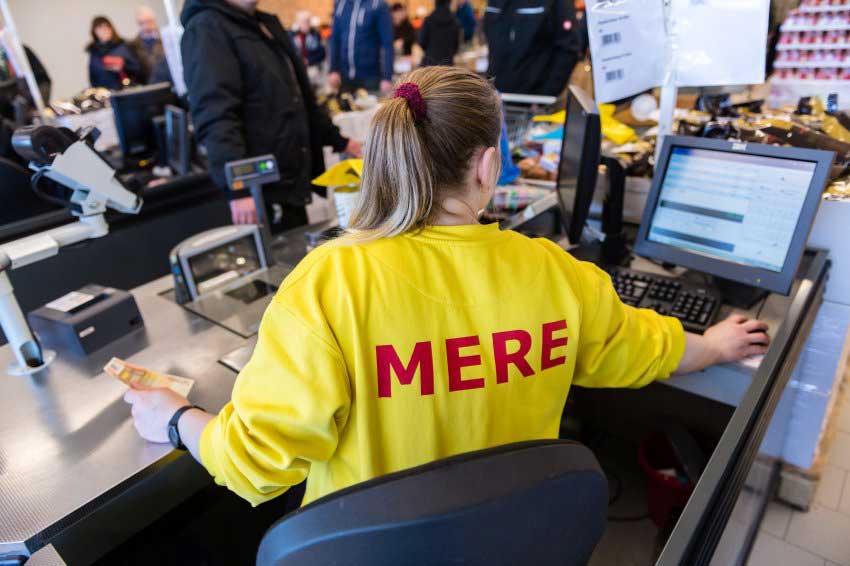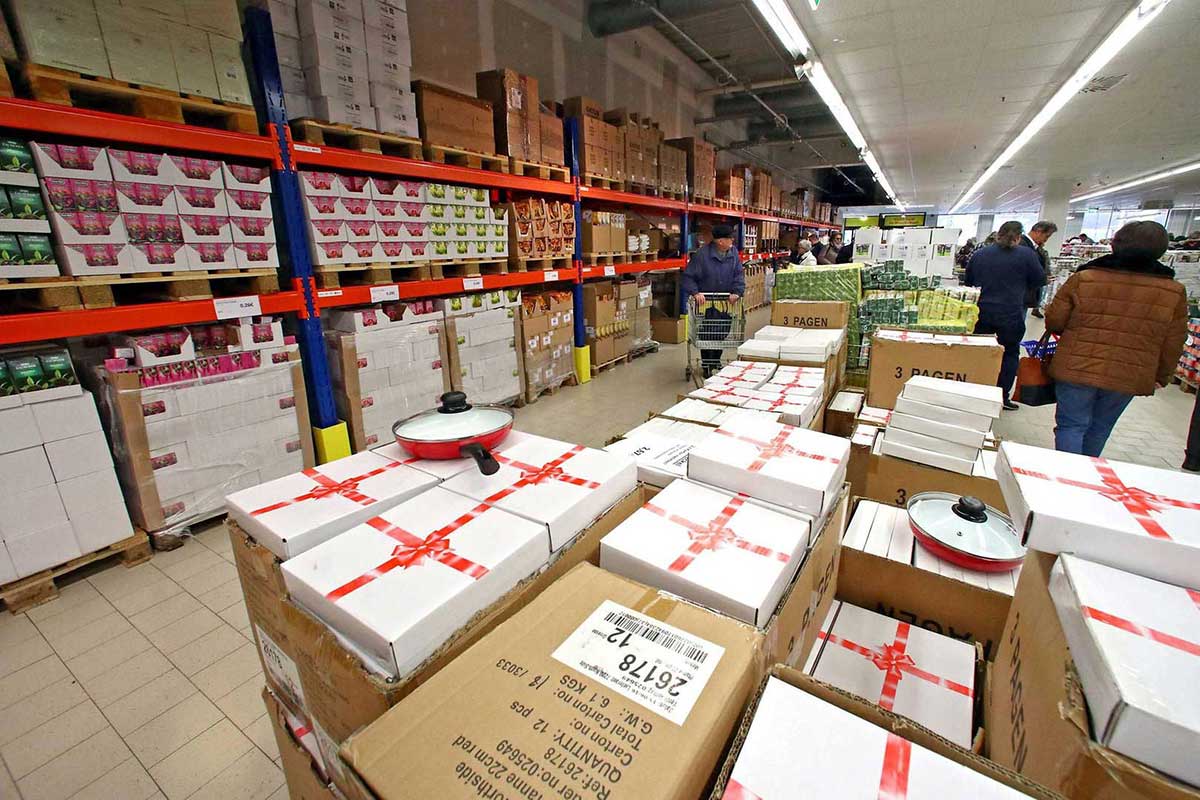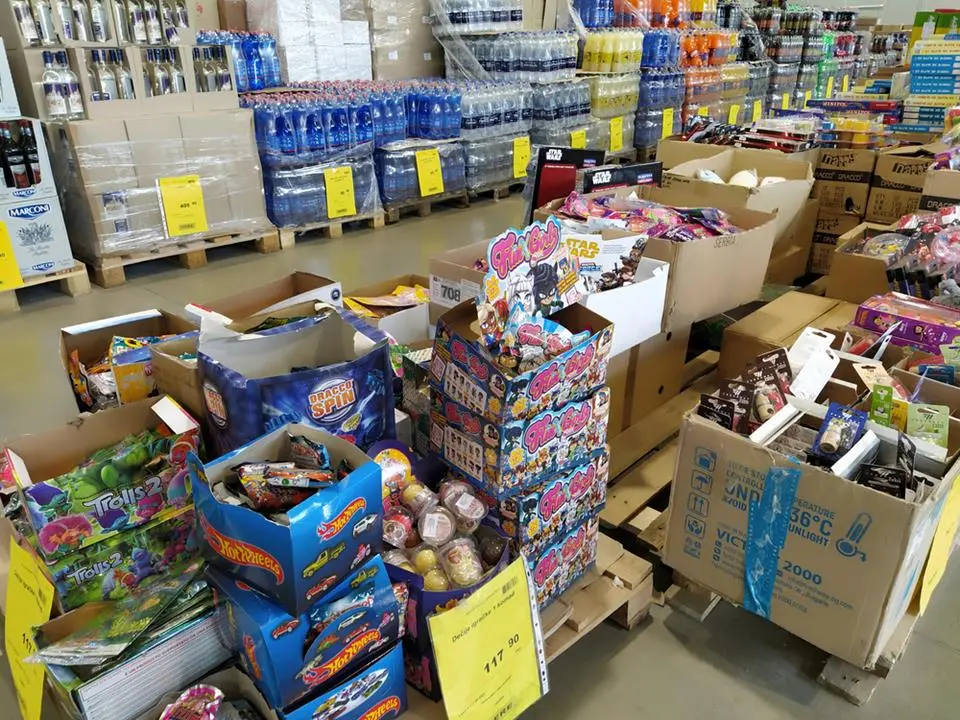Change language:
Russian retail chain Mere to open in Hungary: Locations, timelines, products

The Russian retail chain Mere is set to launch in Hungary, with preparations well underway for the opening of its first store. Although there are numerous uncertainties, Mere’s entry could pose a significant challenge to established discount giants like Lidl and Aldi.
According to market sources cited by Világgazdaság, Mere’s plans to enter the Hungarian market are genuine, and the company is actively preparing for its initial store openings. The question remains whether these efforts will culminate in successful store launches, but the commitment is evident.
Mere’s news originally met with scepticism

On 1 April, Hungarian media widely reported that the Russian discount chain Mere planned to enter the local market, with detailed investment plans. The ambitious goal was to open twenty stores in Budapest and its suburbs within a year and expand to 200 stores within three years, achieving a turnover of EUR 700 million. These figures seemed optimistic, considering that it took Lidl around 15 years to reach a similar scale in Hungary. Mere’s plans also raised doubts as the company had not previously engaged with government or industry stakeholders.
However, new credible information confirms Mere’s serious intent to expand in Hungary, with advanced negotiations for specific store locations. Despite the challenges, the Russian chain aims to establish 15 stores in Hungary over three phases, each phase comprising five stores. The company’s strategy will be to monitor customer reception before further expansion, initially targeting Budapest and its surrounding areas, followed by major cities and eventually smaller towns.
The Russian chain’s entry into Hungary had been planned before the COVID-19 pandemic, which delayed the initiative. The project was revived in the second half of 2023. Currently, the company employs around twenty people responsible for store openings, administration, and procurement. Their progress in securing supplies has been notable, despite operating under modest conditions.
The founders anticipated a smooth entry into the Hungarian market, similar to their experience in Serbia, but they misjudged the complexities. The planned opening dates have been postponed multiple times, with the latest target being the end of May. Despite these setbacks, Mere is determined to succeed and does not intend to abandon its plans.
When and where will the chain open its first store?

According to Világgazdaság, preparations are ongoing on two fronts:
- Regulatory Approval: Mere is finalising a substantial documentation package required for store opening permits. Due to the “plaza stop” regulation, exemptions must be granted by the Hajdú-Bihar County Government Office, which oversees larger commercial building projects. A decision on Mere’s permit could be made by the end of summer.
- Lease Negotiations: Mere is negotiating leases for existing properties rather than constructing new buildings. They are seeking large, cost-effective warehouses around 1,000 square meters, suitable for their pallet-based inventory. Progress has been slow but steady, with near-finalised lease agreements for locations in Budapest’s 4th district (Újpest), Vác, and Szeged. If all goes as planned, the first Mere store in Újpest could open by late 2024, pending necessary permits.
What will they sell in Hungary?

The chain will introduce a new retail model in Hungary, distinct from Lidl or Aldi. The stores will be less convenient, primarily accessible by car, but offer prices up to 30% lower by maintaining a slim 15% profit margin compared to the usual 45-60% in retail.
Regarding product offerings, Mere will not stock international items like Latvian salmon, Lithuanian sausage, or Polish sunflower oil that have appeared in Western European outlets. Instead, the Hungarian stores will feature around 500 products, with 80% sourced from well-established Hungarian suppliers. The remaining products will likely come from local producers who have not yet penetrated major retail chains.
The discount chain’s business model is designed to appeal to Hungary’s price-sensitive consumers. However, to compete effectively with Lidl and Aldi, Mere will need to operate reliably and expand steadily. Whether they can achieve this remains to be seen.
Read also:








When are Lada dealerships coming back? Welcome Hungarians back to Russian control where you live on a par with what you see in that picture of a dumpy Russian warehouse retailer. This is “progress” in Hungary. The country is becoming a very sad joke under the Fidesz bandits who steal anything not nailed to the floor. Correction, they will take it even if it is nailed down.
Yay just what Hungary needs, more Russian investment .
This grocery chain looks terrible. Hungary already is bottom of the barrel when it comes to grocery stores, no selection, no Hungarian chain that is decent (CBA /Prima are the worst in the country for price and quality), and the situation now is that Lidl is the best… Most countries Lidl is the last choice. And now what is the solution? Not to improve local quality and expand selection of goods, stop embarrassing taxes on foreign and local goods that make almost every product more expensive or on par with Austria, not to improve the quality of shops and produce, but invite ugly, war criminal Russian business. A true improvement.
I will never shop here.
Larry, I guess they call it “open market”. When any company may enter the market providing better options for potential customers. What is the problem with that?
Mat there is no “open market” in Hungary as Spar has already complained about. Punitive taxes and regulations are placed arbitrarily by the Fidesz government on foreign based businesses or domestic businesses that are in Fidesz disfavour when they want to force anyone out. Audits are imposed. Regulations impossible to comply with are imposed that will make your business go into failure. You can bet Mere will get preferential treatment. Nothing in Hungary is an “open market” anymore. It is a textbook example of markets under fascism.
Larry, nevertheless SPAR is still working on the market in the country. By the way, providing relatively low standard in terms of choice, quality and etc. Other chains, such as LIDL, AUCHAN, etc. are on the market as well. Therefore the statement “there is no open market” sounds a bit strange.